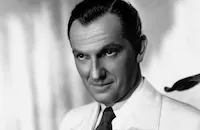Show Boat

Brief Synopsis
Cast & Crew
Harry Pollard
Helen Morgan
Jules Bledsoe
Tess "aunt Jemima" Gardella
The Jubilee Singers
Carl Laemmle
Film Details
Technical Specs

Synopsis
Brought up on a showboat, Magnolia Hawks, the star of her family's river-going revue, marries Gaylord Ravenal, a charming river gambler. Magnolia's father, Captain Andy, is swept overboard in a storm, and Magnolia and Gaylord, harassed by Magnolia's strict, overbearing mother, sell their interest in the showboat to the widow and go to Chicago. Gaylord loses the money at the gambling tables, and, following the suggestion of Magnolia's mother, leaves his family, convinced that they would be better off without him. To support herself and her child, Magnolia goes on the variety stage and makes a success singing Negro spirituals. Magnolia's mother dies, and Magnolia returns to the showboat to be reunited with the reformed Gaylord.

Director
Harry Pollard
Cast

Helen Morgan
Jules Bledsoe
Tess "aunt Jemima" Gardella
The Jubilee Singers
Carl Laemmle
Florenz Ziegfeld

Laura La Plante

Joseph Schildkraut
Otis Harlan
Emily Fitzroy
Alma Rubens
Elsie Bartlett
Jack Mcdonald
Jane La Verne
Neely Edwards
Theodore Lorch

Stepin Fetchit
Gertrude Howard
Ralph Yearsley
George Chesebro
Harry Holden
Max Asher
Jim Coleman
Carl Herlinger
The Billbrew Chorus
Crew
Gene Austin
Frank H. Booth
Edward Cahn
Joseph Cherniavsky
Joseph Cherniavsky
Leo Friedman
Charles D. Hall
Oscar Hammerstein Ii
Arch Heath
C. Roy Hunter
Gene Jefferson
Charles Kenyon
Jerome Kern
Carl Laemmle
Daniel Mandell
Johanna Mathieson
Edward J. Montagne
William H. Myddleton
Eva Olivotti
Maceo Pinkard
Maurice Pivar
Harry Pollard
Tom Reed
Jane Rene
Billy Rose
Robert Ross
Nathaniel Shilkret
Gilbert Warrenton
P. G. Wodehouse
Joseph C. Wright

Film Details
Technical Specs

Articles
Show Boat (1929)

Show Boat (1929)
Quotes
Trivia
Filmed as a silent, with some of the scenes later reshot with dialogue and songs. For the premiere, a 18 minute prologue was added, featuring members of the original Broadway cast: 'Morgan, Helen' (Julie), Jules Bledsoe (Joe) and Tess Gardella (Queenie). The prologue's soundtrack exists, but some parts of the film are missing. Please check your attic.
Laura La Plante's singing was dubbed by Eva Olivotti.
Update: some of the "lost" footage of the prologue has been found, both sound and picture, and this includes footage apparently not included in Turner Classic Movies' (TCM) edition of the film. Some of this once-lost footage is included in "A&E Biography"'s episode "Great Ziegfeld". The discovered footage includes Jules Bledsoe singing "Ol' Man River" with the Jubilee Singers in full costume. Also featured on this "Biography" episode were scenes of Tess Gardella singing "C'mon Folks" and 'Morgan, Helen' singing "Bill." All of these scenes survive in only faintly tolerable sound and picture quality, but at least they survive.
The "miscegenation" sequence, so important to the novel, the stage musical, the two later film versions, and the 1989 television remake, was considered too controversial to retain in this film.
Notes
Universal Pictures acquired the rights to the Jerome Kern-Oscar Hammerstein score after the film had been shot as a part-talking drama. Several scenes were then reshot to include songs, and an eighteen-minute sound prologue was added. The prologue included short speeches by Carl Laemmle and Florenz Ziegfeld and songs from the stage production were performed by Helen Morgan, Jules Bledsoe and Tess "Aunt Jemima" Gardella. Two other filmed versions of the play were made, in 1936 and 1951 (see entries below).














